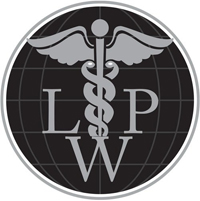Babies are born with protection against certain diseases because antibodies from their mothers were passed to them through the placenta. After birth, breastfed babies get the continued benefits of additional antibodies in breast milk. But in both cases, the protection is temporary.
Immunization (vaccination) is a way of creating immunity to certain diseases by using small amounts of a killed or weakened microorganism that causes the particular disease.
Microorganisms can be viruses (such as the measles virus) or they can be bacteria (such as pneumococcus). Vaccines stimulate the immune system to react as if there were a real infection — it fends off the “infection” and remembers the organism so that it can fight it quickly should it enter the body later.
Types of Vaccines
There are a few different types of vaccines. They include:
- Attenuated (weakened) live viruses are used in some vaccines such as in the measles, mumps, and rubella (MMR) vaccine.
- Killed (inactivated) viruses or bacteria are used in some vaccines, such as in IPV.
- Toxoid vaccines contain an inactivated toxin produced by the bacterium. For example, the diphtheria and tetanus vaccines are toxoid vaccines.
- Conjugate vaccines (such as Hib) contain parts of bacteria combined with proteins.
The American Academy of Pediatrics (AAP) recommends that kids get combination vaccines (rather than single vaccines) whenever possible. Many vaccines are offered in combination to help reduce the number of shots a child receives.
What Vaccines Your Child Needs
The following vaccinations and schedules are recommended by the AAP. Please note that some variations are acceptable and that changes in recommendations often occur as new vaccines are developed. Your doctor will determine the best vaccinations and schedule for your child.
Recommended vaccinations:
- Chickenpox vaccine
- Diphtheria, Tetanus & Pertussis vaccine (DTaP)
- Hepatitis A vaccine (HAV)
- Hepatitis B vaccine (HBV)
- Hib vaccine
- Human Papillomavirus (HPV) vaccine
- Influenza vaccine
- Measles, Mumps & Rubella vaccine (MMR)
- Meningococcal/Meningitis vaccine
- Pneumococcal vaccines (PCV, PPSV)
- Polio vaccine (IPV)
- Rotavirus vaccine
Vaccine Concerns
Some parents may hesitate to have their kids vaccinated because they’re worried that the children will have serious reactions or may get the illness the vaccine is supposed to prevent. But because the components of vaccines are weakened or killed — and in some cases, only parts of the microorganism are used — they’re unlikely to cause any serious illness.
Some vaccines may cause mild reactions, such as soreness where the shot was given or fever, but serious reactions are rare. The risks of vaccinations are small compared with the health risks associated with the diseases they’re intended to prevent.
Immunizations are one of the best means of protection against contagious diseases.
http://kidshealth.org/parent/infections/immunizations/vaccine.html

